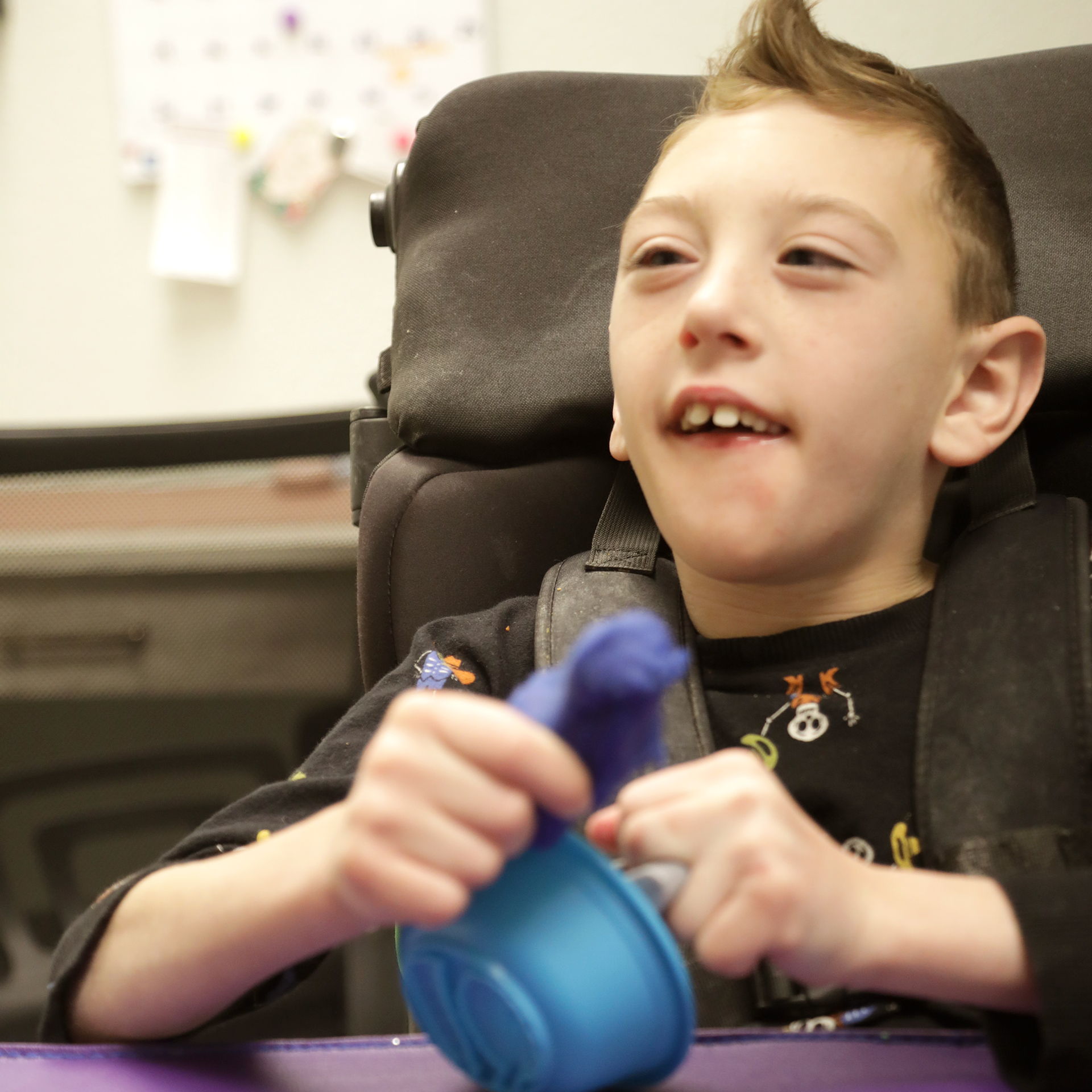Can an RBT Become a BCBA?


Understanding the Transition from Registered Behavior Technician to Board Certified Behavior Analyst
The journey from being an RBT to becoming a BCBA is structured, requiring specific educational qualifications, supervised experience, and successful examination. With diligent planning and adherence to BACB standards, RBTs can elevate their careers, transitioning into independent practitioners responsible for designing and supervising behavioral interventions. This article explores the detailed process, requirements, and career implications of making this professional leap, providing a comprehensive guide for aspiring BCBAs.
The Distinct Roles and Qualifications of RBTs and BCBAs

What are the differences between RBT and BCBA roles and qualifications?
The roles of Registered Behavior Technicians (RBTs) and Board Certified Behavior Analysts (BCBAs) are distinct yet interconnected within the field of applied behavior analysis (ABA). RBTs serve as support staff, assisting with the direct implementation of treatment plans and data collection. They are paraprofessionals who work under direct supervision, requiring only a high school diploma or equivalent, 40 hours of training, and passing the RBT exam.
Bottles.
Educational Pathways and Prerequisites for Advancing to BCBA
What are the educational prerequisites for transitioning from RBT to BCBA?
Moving from an RBT to a BCBA involves meeting several important educational and practical requirements. The cornerstone is earning a master's degree in behavior analysis, psychology, or a related field from an institution accredited by the BACB. This graduate education provides the foundational knowledge necessary for practicum work and independent practice.
Alongside the degree, candidates must complete specific coursework in applied behavior analysis (ABA). This coursework, approved by the BACB, typically encompasses essential areas such as assessment techniques, intervention strategies, and ethics in behavior analysis. The total educational hours required for this coursework are at least 315 hours.
In addition to classroom learning, aspiring BCBAs need substantial supervised fieldwork experience. The BACB mandates between 1,500 and 2,000 hours of supervised practical experience. This experience can often be accumulated through roles such as RBTs or similar positions that provide direct application of ABA principles.
Passing the BCBA certification exam is the final step to earn the credential. The exam covers various competencies in behavior analysis, including experimental design, measurement, ethics, and behavior assessment.
Candidates must also commit to ongoing professional development and continuing education to maintain their certification. This includes completing annual renewal requirements and adhering to the BACB’s ethical standards.
Recent updates from the BACB have introduced additional measures, such as restrictions on who can supervise RBTs and the formalization of supervision policies, which take effect starting October 2024. These updates ensure that supervision quality remains high and that candidates meet the evolving standards of behavioral practice.
In summary, the path from RBT to BCBA involves acquiring a graduate degree, completing specialized coursework, gaining extensive supervised experience, passing a comprehensive exam, and maintaining certification through ongoing education.
Supervised Experience Hours Needed for Certification Progression
How many supervised experience hours are needed for certification advancement from RBT to BCBA?
Transitioning from an RBT to a BCBA involves accumulating substantial supervised experience hours. Specifically, candidates must complete a total of 2,000 hours of supervised fieldwork in behavior analysis. This experience must be gained within a span of no more than five years.
The 2,000 hours are a blend of different types of activities, including restricted and unrestricted tasks related to behavior analysis. At least 60% of these hours should involve unrestricted, behavior-analytic activities such as conducting assessments, designing interventions, and implementing treatment plans.
A significant portion of the supervised hours—at least 50%—must be completed through individual supervision. This means that candidates should have direct, one-on-one oversight during their practical work.
For those engaging in concentrated supervised fieldwork, a minimum of 1,500 hours must be obtained, with at least 10% of those hours supervised on an individual basis. This focused supervision ensures hands-on experience under qualified guidance.
Supervisors overseeing this experience must hold a BCBA or BCBA-D credential, having also completed an 8-hour supervisor training based on the Supervisor Training Curriculum Outline (2.0). Proper documentation of all supervised hours, along with adherence to BACB guidelines, is mandatory to validate the experience and meet certification requirements.
The process ensures that aspiring BCBAs develop the necessary skills and competence under qualified supervision, reinforcing the ethical and practical standards essential in behavior analysis.
Step-by-Step Guide to Certification After Being an RBT

What are the steps involved in obtaining BCBA certification after being an RBT?
Transitioning from an RBT to a BCBA involves several important steps and fulfilling specific requirements. First, it's necessary to meet the eligibility criteria set forth by the BACB, which primarily includes earning a master's degree in behavior analysis, psychology, education, or a closely related field from an accredited institution.
Once educational prerequisites are satisfied, the next step involves completing a minimum of 2,000 hours of supervised fieldwork. This experience must be gained under the supervision of a qualified BCBA or BCaBA and should include both direct client work and other supervised activities that count toward the total hours.
After acquiring the supervised experience, aspiring BCBAs should thoroughly review the BCBA Handbook to understand the exam content, application process, and other requirements. They then need to create an account and submit their application online through the BACB website, providing documentation regarding their education, supervised experience, and other relevant credentials.
Preparation for the certification exam is critical. Many candidates engage in self-study, attend prep courses, or join study groups to ensure they are well-prepared. The BCBA exam consists of 160 multiple-choice questions, covering topics like behavioral assessment, intervention planning, and ethical considerations.
Upon passing the exam, candidates are eligible to apply for certification. This process involves paying the certification fee, submitting proof of exam success, and completing any remaining documentation as required by the BACB.
Maintaining the BCBA credential requires ongoing effort. Certificants must fulfill continuing education units (CEUs), adhere to the BACB’s ethical guidelines, and participate in supervision activities if required for their specific renewal cycle.
In summary, the pathway to becoming a BCBA after being an RBT is structured, demanding, and designed to ensure practitioners are well-prepared to deliver high-quality behavioral services independently.
| Step | Requirement | Details | Necessary Actions |
|---|---|---|---|
| 1 | Verify eligibility | Degree, supervised hours | Obtain a master's degree, document supervised experience |
| 2 | Submit application | Online via BACB | Complete forms, pay fees, upload credentials |
| 3 | Prepare for exam | Study materials, courses | Review the BCBA Handbook, enroll in prep courses |
| 4 | Take and pass the exam | 4-hour exam, 160 questions | Register for the exam, schedule, and pass it |
| 5 | Certification and maintenance | Continuing education, supervision | Complete ongoing CEUs, ethical training |
This structured process ensures that RBTs are advancing their careers responsibly, with proper education and supervised experience, to become qualified independent practitioners as BCBAs.
Preparing for and Passing the BCBA Certification Exam
What are the certification standards and how should one prepare for the BCBA exam?
The certification standards for becoming a Board Certified Behavior Analyst (BCBA) are set by the Behavior Analyst Certification Board (BACB). These standards require candidates to maintain high ethical standards, complete a specified amount of graduate coursework, and accrue supervised fieldwork hours before sitting for the exam.
To prepare effectively, candidates should familiarize themselves with the BCBA Task List, which outlines the skills and knowledge areas tested. Studying the official BCBA Handbook helps clarify requirements and recommended study practices. Various resources are available, including practice exams, study guides like the Cooper Book, and online courses from reputable providers.
It is beneficial to join study groups to exchange knowledge and keep motivated. Using flashcards and watching instructional videos can reinforce understanding of measurement, assessment, and intervention strategies. Practicing under timed conditions can also improve exam performance.
Staying updated with the latest BACB rules, ethical guidelines, and any changes in exam content is crucial. Tracking your progress through mock exams and reviewing weak areas ensures thorough preparation.
Finally, setting a study schedule, maintaining consistency, and having a clear plan can help manage the preparation process efficiently, leading to success on the exam.
Topics covered in the BCBA exam
| Subject Area | Description | Example Topics |
|---|---|---|
| Measurement and Data Collection | Understanding how to collect, analyze, and interpret data | Graphing, data validity |
| Assessment | Conducting and interpreting assessments | Functional behavior assessments |
| Intervention | Designing and implementing behavior intervention plans | Reinforcement strategies |
| Ethical and Professional Conduct | Applying ethical principles in practice | BACB Ethical Code |
| Skills Acquisition | Teaching new skills effectively | Prompting procedures |
| Behavior Reduction | Reducing problem behaviors | Extinction, punishment |
Common study resources and preparation tips
| Resource Type | Examples | Tips | |----------------|----------|-------| | Official Manuals | BCBA Task List, BACB Handbook | Use as primary guides | | Practice Exams | Online mock tests | Simulate real exam conditions | | Study Guides | Cooper et al.'s |
Career Opportunities and Progression Post-Certification

What is the career progression from RBT to BCBA?
Begins with the Registered Behavior Technician (RBT) certification, a foundational credential for individuals interested in behavioral health. RBTs work directly with clients, supporting behavior interventions and collecting data under supervision. To advance, an RBT needs to pursue higher education, specifically a master's degree in behavior analysis, psychology, or a related field. This academic step is essential and must be completed at an accredited institution.
Alongside formal education, gaining substantial supervised fieldwork experience is necessary. For the BCBA certification, candidates must document between 750 to 2,000 hours of supervised practical experience, depending on their pathway. The next milestone is passing the BCBA exam, a comprehensive test covering core areas like behavior analysis, experimental design, measurement, and assessment.
Once certified as a BCBA, professionals are qualified to practice independently, create and oversee treatment plans, and supervise RBTs and BCaBAs. They often take on leadership roles such as clinical directors, program supervisors, or research coordinators. During this stage, many continue their education with advanced courses, attend conferences, or pursue a doctoral degree, opening doors to specialized research and higher-level management.
The entire progression from RBT to BCBA typically spans 6 to 8 years, integrating education, supervised experience, and certification process. The pathway underscores the importance of continuous learning, ethical practice, and hands-on supervision, ultimately moving from direct implementation of behavioral strategies to overseeing programs and mentoring other professionals.
Further specialization opportunities
Post-BCBA, behavior analysts can pursue specialization fields such as Autism Spectrum Disorder (ASD), organizational behavior management (OBM), or advanced research in experimental analysis of behavior. Certifications like BCBA-D (Doctoral-level BCBA) are available for those with doctoral degrees, enabling independent practice and groundbreaking research.
Continuing education and recertification
Maintaining BCBA certification requires ongoing professional development through continuing education units (CEUs). BCBAs must complete 32 CEUs every two years to stay current. This ensures practitioners keep up with evolving techniques and ethical standards, maintaining high-quality service.
Career pathways in behavior analysis
Career options for BCBAs include private practice, non-profit organization leadership, academic roles, or consultancy services. Advancement often involves managerial positions, program development, or pioneering research. Some BCBAs choose to focus on training and supervising RBTs and BCaBAs, further expanding their impact within the field.
Table of Career Pathways from RBT to Higher Roles
| Certification Level | Typical Requirements | Activities & Responsibilities | Career Outcomes |
|---|---|---|---|
| RBT | High school diploma, 40-hour training | Data collection, implementing treatment plans, supervised work | Entry-level support in ABA services |
| BCaBA | Bachelor's degree, coursework, supervised practice | Data analysis, creating intervention plans, supervising RBTs | Mid-level clinical support and supervision |
| BCBA | Master's degree, supervised fieldwork, exam | Designing treatment programs, supervising BCBAs and RBTs | Leadership roles, independent practice |
| BCBA-D | Doctoral degree, research/publication requirements | Advanced research, independent practice, consultative roles | Expert contributor and researcher |
This structured pathway highlights the progression opportunities within the field of behavior analysis, emphasizing ongoing education, supervision, ethical practice, and leadership development.
Maintaining Certification and Ethical Standards in Behavior Analysis

What are the certification standards and how should one prepare for the BCBA exam?
The certification standards for BCBAs are set by the Behavior Analyst Certification Board (BACB). These standards emphasize adherence to a strict code of ethics, completion of required coursework, supervised fieldwork, and passing a comprehensive certification exam.
Preparing effectively requires a strategic approach. Candidates should begin by reviewing the BCBA Task List, which outlines core competencies and subject areas covered on the exam. Studying the official BCBA Handbook is also crucial, as it provides detailed guidelines and expectations.
Utilizing various resources can enhance readiness. Practice exams and study guides, such as the well-known Cooper Book, help familiarize candidates with the question format and content areas. Online modules offered by reputable BACB-approved providers allow for flexible learning and reinforcement of key concepts.
Forming study groups can provide support and encouragement, while flashcards help in memorizing important definitions and processes. Watching instructional videos can clarify complex topics like measurement, assessment, and intervention strategies.
Understanding the structure of the exam is essential. The BCBA exam typically consists of multiple-choice questions across domains such as behavior analytic assessment, treatment planning, and ethics. Practicing under timed conditions can improve test-taking skills.
Lastly, staying updated with the latest BACB announcements and progress tracking ensures that candidates meet all prerequisites on time. This organized approach greatly increases the likelihood of passing the BCBA exam and maintaining certification standards.
Empowering Growth in Behavioral Health
Transitioning from RBT to BCBA is a structured process that involves acquiring higher education, completing extensive supervised experience, and successfully passing the certification exam. While the journey requires dedication and strategic planning, the reward is the opportunity to practice independently, lead interventions, and influence client outcomes significantly. As the demand for qualified behavior analysts continues to grow, professionals who pursue this pathway will find ample opportunities for career advancement, specialization, and leadership in the evolving field of applied behavior analysis.
References
- 7 FAQs for RBTs Pursuing BCBA or BCaBA Certification
- How Do I Go From RBT to BCBA? A Guide
- RBT to BCBA: How To Become Certified
- SUPERVISION, ASSESSMENT, TRAINING, AND ...
- ABA Certification Explained: RBT, BCaBA, BCBA, BCBA-D
- Can an RBT Become a BCBA? (The Requirements)
- BCBA vs. BCaBA vs. RBT: Explaining the Differences
- 7 FAQs for RBTs Pursuing BCBA or BCaBA Certification
- Board Certified Behavior Analyst
Recent articles

What to Expect at Your First Therapy Session
Discover what your child’s first therapy session looks like, from rapport building to goal setting, and how families can feel confident starting care.

Celebrating Small Wins: How Therapy Helps Kids Build Confidence All Year Long
Learn why small wins in therapy matter, how they boost your child’s confidence, and simple ways families can celebrate progress all year long.

Empowering Missoula Children to Grow With Confidence and Connection
Learn how ABA therapy in Missoula helps children build communication, independence, and confidence through personalized, family‑centered support at Advanced Therapy Clinic.

Compassionate Pediatric Therapy in Butte, Montana
A welcoming place where every child’s potential is celebrated

How Pediatric Therapy Helps Kids Thrive across Montana and Wyoming
A supportive guide for families exploring therapy options in Billings, Butte, Missoula or Sheridan.

How to Choose the Right Pediatric Therapy Clinic in Billings, Montana
A Parent‑Friendly Guide To Finding The Best Support For Your Child

